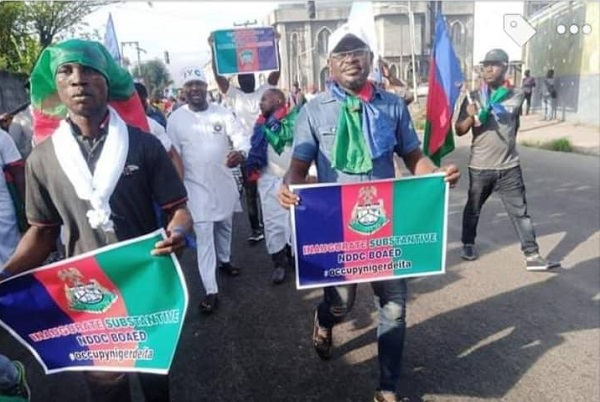Uncovering ‘fraud’ behind FG’s Ajaokuta deal with Global Infrastructure Holdings Company (2)

The first part of this write-up focused on how the Federal Government gave back concession of Ajaokuta Steel to same company, Global Infrastructure Nigeria Limited or Global Steel Holding Company, GINL/GSHL to run for another 7 years as completion of its original 10 years contract.
But GINL/GSHL has been enmeshed in controversies about its reputation and whether or not the company has the managerial and human skills to successfully operate Ajaokuta and Itakpe.
GINL/GSHL is owned by Pramod Mittal who is the younger brother of Lakshmi Mittal. Lakshmi is a renowned guru in the steel industry with successful tract records in South Africa, England and other countries. He had a successful relationship with his younger, Pramod until he felt uncomfortable with his younger brother’s business style. They finally went their different way which prompted Pramod to set up Ispat Steel Company.
Ispat started operation in India but got itself into Corporate Debt Restructure, CDR. CDR is going to places in the guise of reviving industries but processed in collecting loans from banks, selling assets among others without the intension to pay back or revive any industry.
In 2003, the Indian government took over Ispat from Pramod Mittal as result of owning 18 Indian banks over 800 million euros.
The takeover of Ispat Steel by the Indian government forced Pramod Mittal to establish and registered Global Steel Holding Limited, which later came to Nigeria to do business. As at today, findings revealed that Global Steel Holding Limited has no record of any successful steel business anywhere in the world. The deal signed by the Federal Government happens to be the biggest deal for Pramod in recent time. The question on the lips of some Nigerians is: What do we expect from a company that has no record of successful mine or steel business anywhere in the world rather than debt accumulation and assets stripping?
GSHL/GIHL and Bulgaria’s Kremikovtzi AD
Kremikovtzi AD (Кремиковци АД) was Bulgaria’s largest metalworking company. The construction of its facilities began on 5 November 1960 and the first production capacities were put into operation in 1963 to produce cast iron and coke, with production extending to cover other areas in the 1960s and 1970s. The company was privatised in 1999, 71% of it was acquired by a Bulgarian owned company — Daru Metals (later to change its name to Finmetals Holdings). In 2005 Valentin Zahariev and Kiril Zahariev sold 100% of Finmetals Holdings for US$110 million to Global Steel Holdings Limited (GSHL), owned by Pramod Mittal, brother of the highly successful Lakshmi Mittal. Kremikovtzi is not related to the Arcelor Mittal group.
In November 2006, the debt obligations of the company were subject to extreme price volatility as speculation mounted about the depth of commitment to the business by GHSL. Pramod Mittal, the company’s owner, issued a statement to reassure investors of his ongoing interest in Kremikovtzi’s success; but this was not sufficient to dampen the ongoing volatility of the debt price. At the beginning of December 2006, GSHL issued another statement, this time committing to inject cash into the business on an ongoing, quarterly basis.
Mittal withdrew from the company a year or so later, and since then the company is being kept afloat by the socialist government, desperately seeking for a potential investor. All negotiations ultimately failed, but fuel and salaries were not being paid during that period, creating additional debts for the company. Since December 2008 the factory is virtually non-functioning, kept in a safe-standby mode.
On May 15, 2009, the coke production plant – one of the most controversial symbols of the company – has been shut down forever. Gas supply (main fuel for the factory’s operations) has been cut off, although it can be restored. The fate of the company is unknown, but prospects are gloomy.
For this reason Alexander Tomov, former president of the CSKA Sofia football club and former CEO of the Kremikovtzi steel plant, was sentenced Wednesday to a total of 9 years in jail for embezzlement.
The Sofia City Court sentenced Tomov for document fraud and large-scale embezzlement while he was in the management of the now bankrupt steel mill. Another defendant, Ivan Ivanov, received the same sentence, while Bozhko Bonev was acquitted on the same charges.
Late president Yar’ Adua to the rescue and the Mogaji Inuwa report
In 2008, late President Umaru Yar’ Adua terminated the contract and ordered the arrest of Pramod Mittal for breach of contraction, debt, and rip-off of the Ajaokuta Steel and NIOMCO, Itakpe. GIHL left the country and took the case the Arbitration Court in London
Yar’ Adua led government inaugurated a five-man administrative panel of inquiry to probe the concession agreement it entered with GIHL on the Ajaokuta Steel Company and the sale of other related Steel companies.
Minister of Mines and Steel Sarafa Tunji Isola inaugurated the Committee at the Conference Hall of the Ministry in Abuja. The panel was chaired by Magaji Inuwa, a former General Manager and Chief Executive of Ajaokuta Steel Company while other members include Ibrahim Gubio, a retired Police Commissioner, Emmanuel Nwodi Ekeh, Vincent Odafe while Kunle Bolajoko is to serve as Secretary to the Committee.
The report of the five-man panel submitted to the steel minister, Chief Tunji Sarafa Ishola, said GIHL failed to deliver on the terms of the concession agreement, instead it used the companies to secure loans without corresponding investments.
According to the committee, the N24 billion secured from Zenith, Ecobank, UBA, FBN, Oceanic, FCMB, Bank PHB and Sterling Bank went into private pockets.
The report expatiates: “As at November 15, 2007, the aggregate borrowings from the Nigerian banks is a little over N24billion. These borrowings are allegedly secured with the assets of Delta Steel Company. BPE confirmed that there have been no board approvals for any of these borrowings and for the assets of DSC to be used as collateral for ASCL and NIOMCO. The figure (N24billion) supplied by the finance director of the GIHL could be more considering the interest of about 14% per annum. One is therefore forced to ask what happened to the funds borrowed.”
The report further found innumerable cases of diversion of value from the ASCL to either DSL or outrightly sold abroad for cash. The bottomline, the panel said, is that ASCL is gradually being crippled while GIHL’s interest is being buoyed in Nigeria and overseas.
“On the resumption of GIHL management at the ASCL and NIOMCO, processed iron ore stored at ASCL were carted away to Warri and sold to interested groups overseas.”
Sales of the said processed iron ore had continued for a while before the Monitoring Committee assessed what was left at a little over $2, 077, 545, 00. GIHL paid about $1, 000, 000 and just a week into the life of this panel the processed iron ore should not have been sold in the first place. It is a vital raw material for production at ASCL.
“Mention has been made of the issue of Essential Premium Scraps needed by ASCL which Global carted away to DSC. These scraps are worth N203, 371,260.27 at today’s prices. This money is yet to be paid to FGN. The scrap should not have been sold because ultimately ASCL will need to import similar premium scraps at a higher price sooner or later.”
The panel chaired by Magaji Inuwa called for a review of the approval given to GIHL by the National Office for Technology Acquisition and Development (NOTAP).
One of the ways the GIHL claims to have spent money on Ajaokuta is through technology transfer. GIHL said it has transferred US $17,356,896.02 using NOTAP approvals.
In order to ensure that it does not part with a penny on the Ajaokuta deal, GIHL, in concert with its Nigerian sponsors, came up with a report that put the value of the Ajaokuta Steel Company at a paltry $300 million.
The company also submitted a letter to Bureau of Private Enterprise, BPE that says it has spent the sum of $250 million on the Ajaokuta Steel Company since August 2004 when it took over the management of the Nigerian steel giant.
With the $250 million expenditure it submitted and which it claims to have spent, GIHL maintained it had already spent far more than it was expected to pay for the 60 percent share of the company it is targeting in the privatisation deal.
By its claim, GSHL would not only take Ajaokuta free of charge, it would also expect the government to make a refund of some millions of dollars to it, being the excess of what it claimed it had invested.
But the report deflated this claim by the Indian firm, saying “We requested for evidence of this massive investment but GIHL could not substantiate this except for a list of spare parts and consumables bought and cleared by DSC.”
Another startling revelation of the panel is that since GIHL took over the running of Ajaokuta Steel Company, it has not paid the salaries of workers regularly. This has led to several industrial disputes between the management and workers of the establishment.
GIHL owes both the Russian and Ukrainian experts working with them salary arrears for about a year.
Chairman of Nigeria Union of Mines Workers, NUMW, Mr. Ogboko Newlife informed Business Times in a telephone chat that before late President Yar’Adua terminated GIHL contract, the company grounded NIOMCO, Itakpe, sold parts, owned workers 13 months salaries and left the country.
With the mounting evidence of debt, breach of contract, and degradation of NIOMCO, Itakpe, the Minister of Solid Minerals Development, Dr Kayode Fayemi on Channels Television said Federal Government could not provide evidence against GIHL.
What more evidence does government need?
Analysts are of the opinion that it is an embarrassment for Fayemi to say that there is no evidence to disqualify GIHL from further exploitation of Nigeria’s commonwealth.
According to Lawyer and Social Entrepreneur, Barrister Natasha Hadizah, “GIHL should be sued to court and be made to pay for holding Nigeria’s economic resources to ransom. If Nigeria gets its calculations right, we should sue the company for all these years that the iron ore has been there untapped while the case was in court. If we were mining we would have made a lot of money by now. And Ajaokuta has remained shut down for years. Why is Nigeria not thinking of suing them for the wear and tear of the equipment at Ajaokuta? By the time we calculate all these, GIHL would even still be owing us and not the other way round,” she said.








